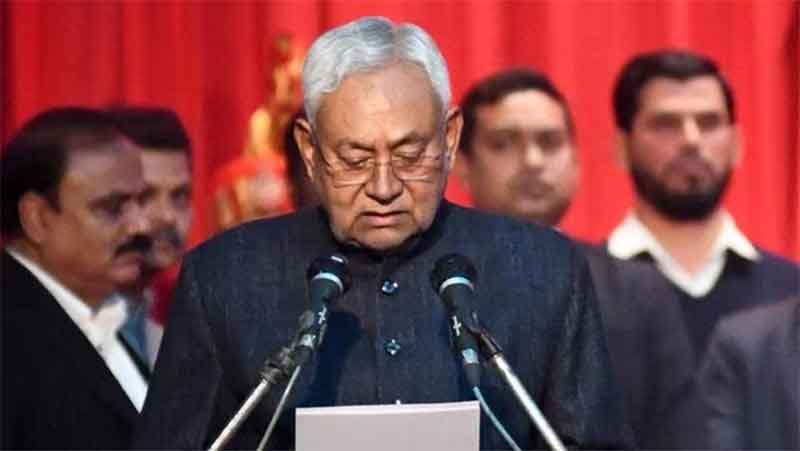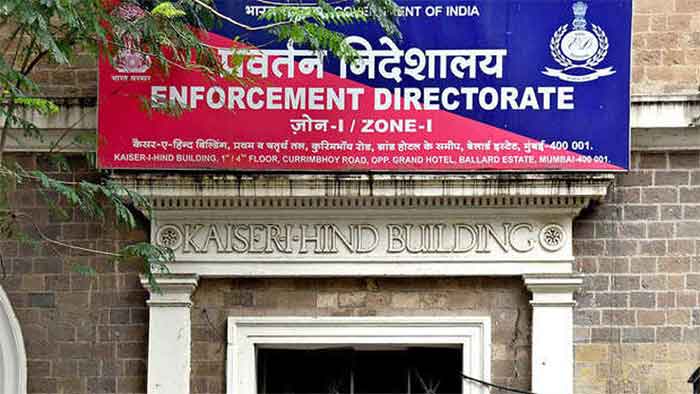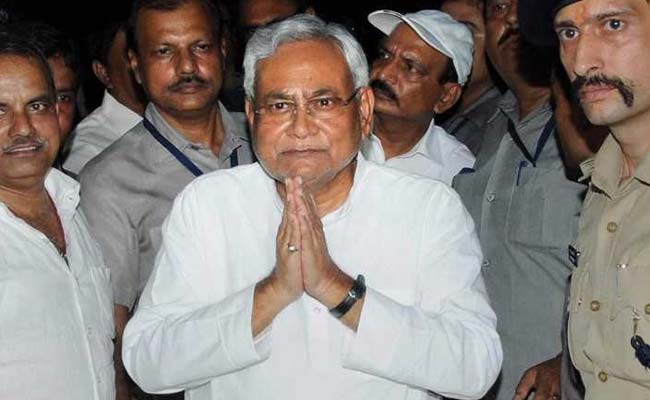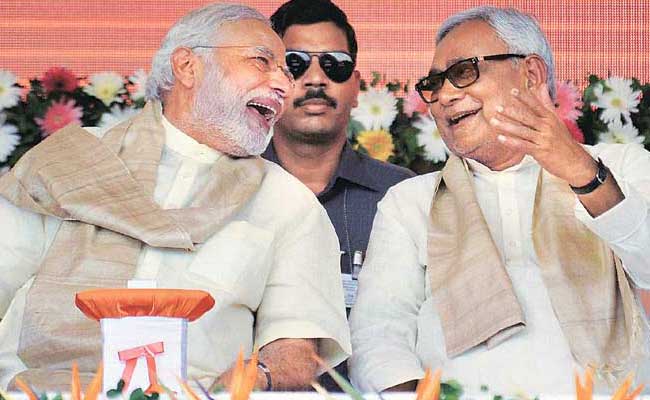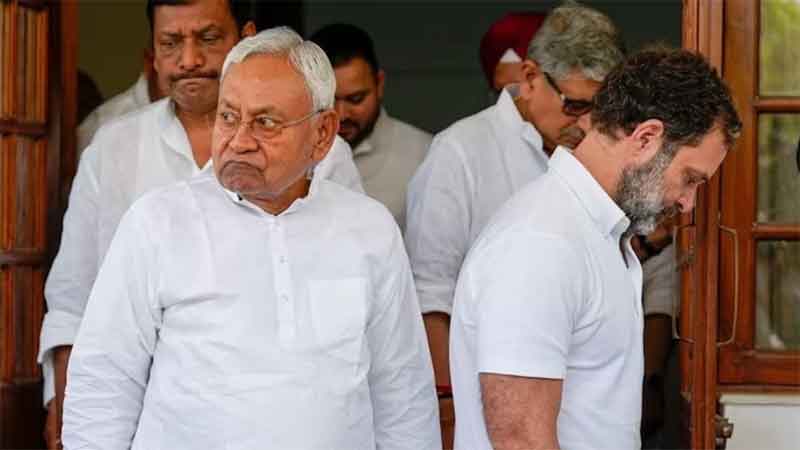
On January 28, Nitish Kumar is sworn in as chief minister of Bihar for the ninth time, with support from the Bharatiya Janata Party, his on-again, off-again ally. With this, the week-old drama over the change of alliance in the state came to an end. The appointment of the NDA government under Nitish Kumar and events over the last ten days raise many crucial questions about the emerging contours of Indian politics. These questions go beyond the issues of morality, which for long have been abandoned in favour of political pragmatism. Institutional structures and propriety that provided a fig leaf for deception were cast aside way back in the 1960s. Now, the crucial question is: Are ideology, morality, and legitimacy in Indian politics coming to an end? Or is this the start of coalition politics that are pragmatic, interest-based, and development-focused? Does the mandate of the people matter in the new coalition politics that India is seeing? When ideology is rendered irrelevant, how is the mandate of the 2020 Bihar Assembly Election to be understood?
There are numerous examples of unholy and ideology-less coalition governments, both at the centre and the state. From the time of the Janata Party government in 1977, when a disparate group of parties came together on the plank of anti-Congressism to form the Bharatiya Janata Party-Peoples Democratic Party (PDP) coalitions in the erstwhile state of Jammu and Kashmir. The point here is the fact that a political and opportunistic alliance often compromises the mandate given by the people. This was most apparent in Bihar in 2015 when the Janata Dal (United) and Rashtriya Janata Dal (RJD) came together to fight the election and form a government in Bihar, but later the RJD pulled out of the alliance in 2017 and the Nitish Kumar-led JD (U) continued in office with the support of the BJ. Nitish Kumar’s JD (U) performed poorly in the 2020 Bihar assembly elections as the party was reduced to just 43 seats. Though, despite overshooting the partner JD (U), the BJP agreed to form the government under Nitish Kumar’s leadership. The BJP needed Nitish to keep the RJD-led coalition out of power, and Nitish needed the BJP to form the government. Again, Nitish quit the NDA in 2022 and formed a government with the Rashtriya Janata Dal (RJD) and Congress. Political parties end their core ideology in lieu of power gain and connect their decisions with the development of the nation. It is unfortunate that political ideology is now associated with the business of pursuing personal interests. We need to deeply understand that political ideology is an important and inseparable part of any society. A political ideology attempts to provide a comprehensive vision of society and human existence. It is an overarching framework within which individuals can make sense of the world and find ways to improve it. Bihar has been experiencing the lowest scores on various developmental indexes, such as low human capital, weak institutions, and poor infrastructure, as it has had a history of political instability with frequent changes in government. The execution of policies and the quality of public administration have not played a defining role in development trajectories. Economic growth and political stability are deeply interconnected. On the one hand, the uncertainty associated with an unstable political environment may reduce investment and the pace of economic development. On the other hand, poor economic performance may lead to government collapse and political unrest.
Indian party politics is typically characterized as centred on leaders, based on social cleavages, and not ideological. For today’s politicians, power is the essence of life. Ideology, political commitment, and loyalty are variables. The party system that existed until a decade ago is under challenge. It is more like business executives seeking better career options. It has become purely transactional. Political parties in India appear to be personalized parties, and political credibility does not find any space. Uddhav Thackeray has so well diluted Shiv Sena’s aggressive Hindutva to accommodate his secular allies like the NCP and Congress.
Declining Nitish Kumar’s political credibility and trust among the voters in Bihar on account of personal power gains leads to a dent in JD (U) for the forthcoming 2024 parliamentary election. The JD (U), which governed Bihar for most of the period since 2005, suffered its worst electoral loss in 2020 due to the shrinking credibility space among the voters. The people of Bihar brought Nitish Kumar to power in 2005 with great expectations after 15 years of RJD’s rule. Ten years ago, Nitish Kumar was known as ‘Susashan Babu’ (an architect for good governance) in the political system, as he was then the face of development in Bihar. From 2005 to 2013, everything was fine, as he also tried his best to live up to the expectations of the people. Though, in the last 10 years, Nitish Kumar has lost political credibility, he is now the best example of repeated ‘U-turns’ politics who frequently change political allegiance and jump from one political party to another. Nitish Kumar remained in the post of chief minister and continued to run the Bihar government according to his own political interests. Despite all this, his popularity and the party’s influence are waning. The JD (U) was reduced to 88 seats in the 2005 Bihar elections, 115 in 2010, 71 in 2015, and just 43 seats in 2020. JDU’s strength in the assembly is continuously decreasing. It is believed that the political career of the’ Susashan Babu’ is going downhill.
There appear to be a few questions about why Nitish Kumar loses his political credibility and is ready for far-reaching consequences. Whereas the BJP and Congress did not lose their credibility if they compromised their core ideologies while making unholy alliances with the PDP in Jammu and Kashmir and with Shiva Shena in Maharashtra, respectively? Both the BJP and the Congress did not deal for the chief ministerial position despite having the single largest party and offered these positions to others. The BJP remained one of the alliances under the chief ministership of Mehbooba Mufti. Like-wise, the Congress did it in Maharashtra under the chief ministership of Uddhav Thakrey. On the other hand, the way Nitish Kumar has changed political alliances conveniently for the last ten years and remains as the chief minister of Bihar shows his political opportunism. Therefore, Nitish Kumar is not compromising on ideology; he always looks forward to opportunistic alliances and often compromises the mandate given by the people.
To conclude, Nitish Kumar’s credibility was always questionable in the ‘INDIA’ alliance owing to frequent political flip-flops. Nitish Kumar had brought the concept of the ‘INDIA’ alliance in order to counter the BJP at the national level and shifts his alliance by taking a ‘U” turn, which weakens faith in democratic institutions. It should be a cause for concern in Indian politics.
Dr. Ahmed Raza, Assistant Professor in MANUU central university. Author of two books titled” Politics and Governance in India” and “NGOs, CSOs and Local Governance in India”

